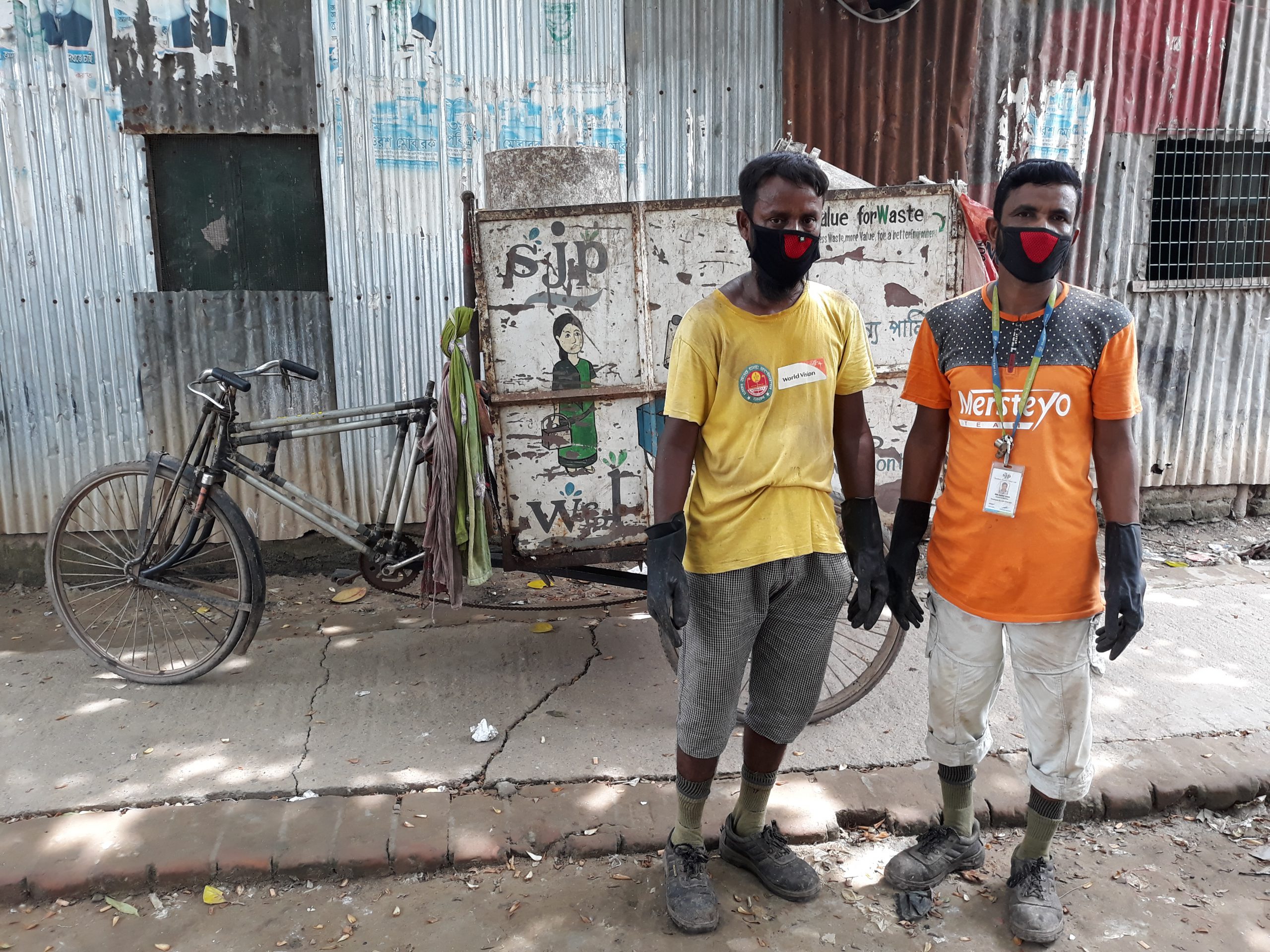“As we cannot travel to Bangladesh, we have to rely more on our partners,” explains Astrid van Agthoven, Aqua for All’s Regional Programme Manager South Asia. In March 2020, Bangladesh imposed a lockdown and travel restrictions to contain the COVID-19 outbreak. The COVID-19 pandemic has hit the country hard with almost 371,631 reported cases. Astrid elaborates on the water and sanitation situation in the country and her work in times of COVID-19.
What is your relationship with Bangladesh?
Bangladesh has been an important part of my life. Before joining Aqua for All in 2015, I lived abroad for more than 17 years, mainly in Asia. During this period, I spent five years in total living in Bangladesh. In 1997, I moved to Bangladesh for the first time to work for a Dutch-funded urban water and sanitation project for more than two years. From 2008 to 2011, I worked in Bangladesh again for UNICEF’s water and sanitation programme. I also visited the country regularly before the COVID-19 outbreak, which allowed me to learn more about its culture and dynamics.
How would you describe the water and sanitation situation in the country?
In Bangladesh, access to basic water and sanitation is quite good compared to other countries where A4A is active. However, Bangladesh still has a long way to go before its 165-million inhabitants have access to safely managed water and sanitation services as required to achieve SDG 6.
Water quality is a critical bottleneck. Bacteriological contamination, arsenic, salinity and iron in the water are common problems. Open defecation is nearly eliminated, but about one-third of the toilets are unimproved. There are no proper sewerage systems outside Dhaka. But even there, the sewerage network only serves 22% of the city’s population.
Water and sanitation are predominantly driven by the government and NGOs. While the private sector’s role is increasing, commercial approaches or public-private partnership models are underdeveloped. In this context, we intentionally partnered with Bopinc. Bopinc’s Bangladesh team has an out-of-the-box approach to facilitate innovations, inclusive business development and marketing.
How has the COVID-19 crisis affected your work?
Aqua for All has a modest track record and few partners in Bangladesh. From the four visits planned for this year, only the first one in January to launch our new programme has been carried out. Other constraints are the limited mobility of our partners’ staff in the field and the shift in priorities due to COVID-19. It is hard to plan, not knowing what could be possible at the short, medium and long term.
How has the COVID-19 crisis impacted water and sanitation public and private service providers?
Water utilities have continued operating and have allowed delaying water bills’ payment if required. But for water and sanitation small and medium enterprises (SMEs), the situation is challenging. They market their products and services primarily through door-to-door and face-to-face activities. This was impossible under the lockdown. And when the country gradually opened, these SMEs had to invest in protective gear for their employees. Revenue loss and higher operational costs put them at risk. Households demanded more water and sanitation services to comply with COVID-19 measures like handwashing, but they have fewer financial means because many breadwinners have lost their source of income.
Which challenges and opportunities for Bangladeshi water and sanitation enterprises do you foresee in the short and long term?
The COVID-19 crisis comes on top of other challenges like natural disasters such as the cyclone Amphan (May, 2020) and the heavy monsoons that inundated 1/3 of the country affecting tens of millions of people. I admire the strength and resilience of the Bangladeshi people to deal with this complex situation and continue moving forward.
Demand for quality water and sanitation services is likely to increase. Service levels were gradually improving and private operators were stepping in, e.g. running small piped schemes in rural areas. However, as more people are regressing back to poverty, reaching these consumers with affordable services will be challenging. Let us hope that the current economic setbacks will soon be overcome so that the trend towards better water and sanitation services can resume.
How could private funding contribute to tackling the higher demand/need for safe water?
Access to finance is more important than ever for water and sanitation SMEs and households. But in the current situation, mobilising private capital is very difficult as financiers are risk averse. Therefore, we need to develop innovative, smart solutions that use grants to leverage capital by de-risking investments in water and sanitation. This way of mobilising funds is embedded in Aqua for All’s work. And the effects of the COVID-19 crisis and its aftermath on the water and sanitation sector confirm its relevance.
This article is part of our COVID-19 response series in which Aqua for All team members share their story on how the outbreak has affected their work and the water and sanitation economy in their focus countries. To read more articles from this series, click on the links below:
“My home office is a call centre” – Building partnerships during Kenya’s lockdown
“Access to funds can make all the difference”- Financing water supply in Ethiopia
Safeguarding access to water in times of COVID-19
